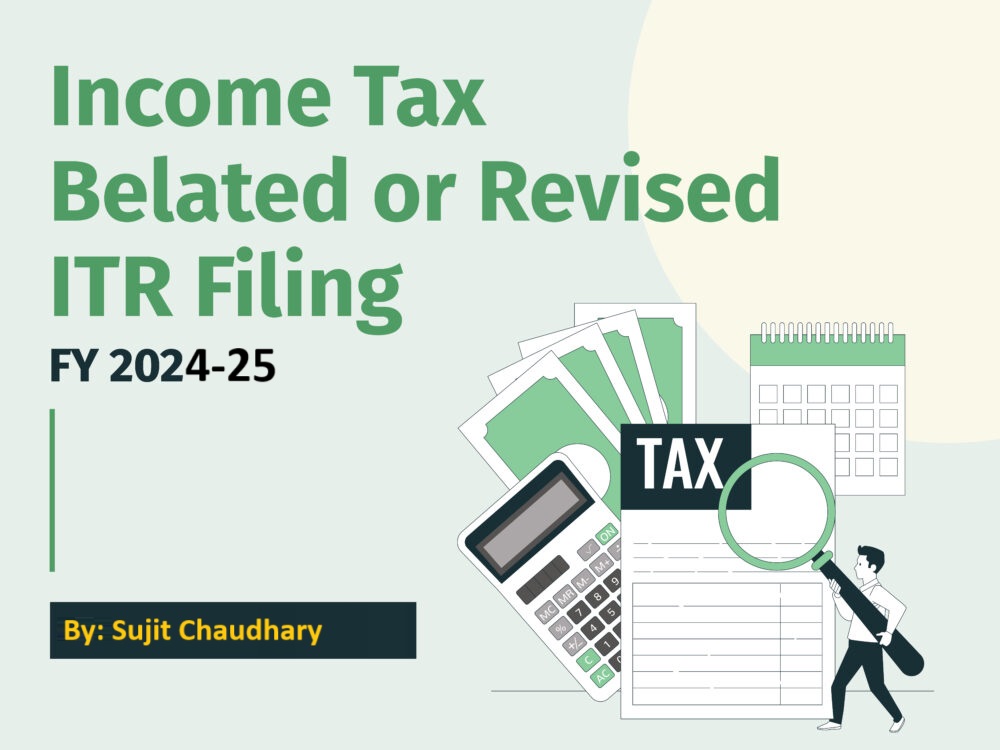Understanding Section 44 of the Income Tax Act: Presumptive Taxation Schemes
Section 44 of the Income Tax Act, 1961, contains provisions for presumptive taxation schemes that simplify the process of computing taxable income for small businesses, professionals, and transporters. These schemes allow taxpayers to calculate their income as a percentage of turnover or gross receipts, reducing compliance burdens while ensuring transparency.
This article provides an overview of the key sub-sections of Section 44, their applicability, and benefits.
Key Sub-Sections of Section 44
- Section 44AD: Presumptive Taxation for Small Businesses
Applicability:
Businesses (other than those engaged in the business of plying, hiring, or leasing goods carriages).
Turnover or gross receipts must not exceed ₹2 crore in a financial year.
Applies to resident individuals, Hindu Undivided Families (HUFs), and partnership firms (not LLPs).
Presumptive Income:
8% of total turnover or gross receipts.
6% if transactions are received digitally or through banking channels.
Key Features:
No need to maintain detailed books of accounts.
Taxpayers are exempt from audit requirements under Section 44AB.
- Section 44ADA: Presumptive Taxation for Professionals
Applicability:
Professionals engaged in specified professions like legal, medical, engineering, architecture, accountancy, consultancy, or other notified professions.
Gross receipts must not exceed ₹50 lakh in a financial year.
Presumptive Income:
50% of gross receipts or higher if the actual income is greater.
Key Features:
Simplifies tax filing for professionals.
Exempts taxpayers from maintaining detailed books of accounts and audits under Section 44AB.
- Section 44AE: Presumptive Taxation for Transporters
Applicability:
Individuals, HUFs, firms, or companies engaged in the business of plying, hiring, or leasing goods carriages.
Limits the taxpayer to owning up to 10 vehicles during the financial year.
Presumptive Income:
₹1,000 per ton of gross vehicle weight per month (for heavy goods vehicles exceeding 12 tons).
₹7,500 per vehicle per month (for other vehicles).
Key Features:
No need to maintain books of accounts.
Audit exemption under Section 44AB.
Common Features of Presumptive Taxation Schemes
- Ease of Compliance:
Simplifies the tax filing process for small businesses, professionals, and transporters.
- Exemption from Books of Accounts:
Taxpayers opting for these schemes are exempt from maintaining detailed financial records.
- Audit Exemption:
Eliminates the requirement for tax audits under Section 44AB for eligible taxpayers.
- Straightforward Tax Calculation:
Income is calculated as a fixed percentage of turnover or gross receipts.
Who Should Avoid Presumptive Taxation?
Taxpayers with significant expenses that would result in a taxable income lower than the presumptive calculation.
Entities not eligible for presumptive taxation (e.g., Limited Liability Partnerships (LLPs) and certain businesses under Section 44AD).
Examples to Understand Section 44
Example 1: Section 44AD (Small Business)
Turnover: ₹1.5 crore.
Digital Receipts: ₹1 crore.
Presumptive Income:
Digital receipts: 6% of ₹1 crore = ₹6 lakh.
Cash receipts: 8% of ₹50 lakh = ₹4 lakh.
Total Income: ₹10 lakh.
Example 2: Section 44ADA (Professional)
Gross Receipts: ₹40 lakh.
Presumptive Income: 50% of ₹40 lakh = ₹20 lakh.
Example 3: Section 44AE (Transporter)
Owned Vehicles: 5 trucks, each with a gross vehicle weight below 12 tons.
Income: ₹7,500 × 5 trucks × 12 months = ₹4,50,000.
Benefits of Section 44
- Reduces Compliance Burden:
No need for maintaining detailed books of accounts.
- Encourages Small Taxpayers:
Simplifies tax compliance for small businesses and professionals.
- Saves Costs:
Eliminates the need for expensive tax audits for eligible taxpayers.
- Promotes Digital Transactions:
Incentivizes businesses to adopt digital payment methods through lower presumptive rates.
Limitations of Presumptive Taxation
Fixed Income Percentage:
May not benefit taxpayers with high expenses.
Ineligibility for Certain Businesses:
LLPs and large transport businesses are excluded.
Restriction on Turnover/Gross Receipts:
Businesses with higher turnover or receipts must follow the regular taxation system.
Conclusion
Section 44 of the Income Tax Act offers a simplified taxation structure for small businesses, professionals, and transporters. By reducing compliance burdens and audit requirements, it encourages timely tax filing and reduces administrative costs. However, taxpayers must carefully evaluate their eligibility and actual income to determine whether the presumptive taxation scheme is beneficial.
For personalized advice, consulting a tax professional is recommended to ensure compliance and optimization of tax liabilities.


